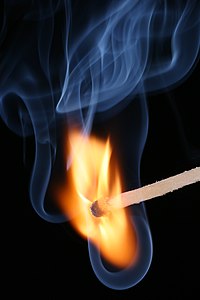uguns
Latvian

Etymology
From an earlier feminine i-stem ugunis (still attested in old folk songs), from (deprecated template usage) [etyl] Proto-Baltic *ugnis, from *ungnis, from (deprecated template usage) [etyl] Proto-Indo-European *h₁n̥gʷnis, the “animate” or “sacred” word for “fire” (there was another, more “parochial” or “profane” term, *péh₂wr̥, which in Baltic languages survived only as Old Prussian panno). The initial vowel u is irregular; to account for it, some have suggested variation in Indo-European (*egnis ~ *ognis ~ *n̥gnis < *h₁n̥gʷnis), and others the influence of *ūden- on a previous Proto-Baltic *agnis; cf. a-initial relics like Latvian agns (“enthusiastic, passionate”), Lithuanian agnùs (“energetic, strong”). Cognates include Lithuanian ugnìs, dialectal ùgnis, ùgnė, Proto-Slavic *ogňь (Old Church Slavonic огнь (ognĭ), Russian ого́нь (ogónʹ), Ukrainian вого́нь (vohónʹ), Belarusian аго́нь (ahónʹ), Bulgarian о́гън (ógǎn), Czech oheň, Polish ogień), Sanskrit अग्नि (agní), Latin ignis.[1]
Pronunciation
Noun
uguns f (6th declension)
- fire (visible light and thermal radiation produced by a body heated to the necessary temperature; flames, group of flames)
- uguns kuras ― the fire is burning
- uguns deg krāsnī ― the fire is burning in the oven
- uguns apdziest ― the fire goes out
- iekurt uguni ― to kindle the fire
- izdzēst, nodzēst uguni ― to put out the fire
- nopūst uguni ― to blow out the fire
- uzšķilt uguni ― to strike a fire
- kurināt uguni ― to stoke the fire
- iesviest papīru ugunī ― to throw paper into the fire
- uguns svelme ― fire glow
- uzlikt katlu uz uguns ― to put a pot on the fire
- sildīties pie uguns ― to warm up by the fire
- uguns siena, jūra, vilnis ― fire wall, see, wave
- uguns pielūgšana, kults ― fire worship, cult
- lēna uguns ― slow fire (= with a small flame)
- strauja uguns ― rapid fire (= with a big, strong flame)
- uguns trako ― the fire is raging
- mūžīgā uguns ― eternal fire
- olimpiskā uguns ― Olympic fire
- fire (a means of igniting fire, such as matches, lighters, etc., or combustible matter, fuel, etc., used to make fire or keep it burning)
- viens ieprasās: “vai kādam ir uguns? kā uzpīposim, kad būsim paēduši?” ― someone asked: “does anyone have fire / a light? (or else) how will we smoke, after we eat?”
- (figuratively) fire, light (feeling of warmth, often signifying power, strength)
- Meļķis dzēra; patīkama uguns izskrēja caur dzīslām ― Meļķis drank; a pleasant fire ran through his veins
- vai kāds vairs prot veco krusta deju, kur bija straujums un plašums? uguns svila dzīslās, un grūti bija norimties vien ― does anyone still know the old cross dance, in which there was speed and breadth? fire burned in the vains, and it was difficult to calm down alone
- (figuratively, usually plural) fire (bright light; bright color)
- debesis sāk degt saulrieta ugunīs ― the sky began to burn in the fires of the sunset
- (figuratively) fire (passion, sexual and otherwise; strong enthusiasm)
- Edgara acis liesmoja, viņā noskatoties, un viņa skūpstos bija uguns, no kuras Kristīne nodrebēja ― Edgar's eyes were ablaze, looking at her, and in his kisses there was a fire from which Kristīne shivered
- kā gan aktieris var tēlot... bez garīgas radošas uguns? ― how can an actor act... without a creative spiritual fire?
- viņa acīs mirdzēja tāda savāda uguns ― in his eyes a peculiar fire was shining
- Lauris bija tas uguns, kas visiem iedvesa dedzību un sparu ― Lauris was that fire which inspired zeal and vigor to all
- revolūcijas uguns vēl neslāpa 1906. gadā; taču līdzskrējēji jau nogāja malā, slēpās ― the revolutionary fire was not stifled in 1906; on the contrary, (its) supporters went into hiding
- artificial light(s), light source(s)
- luksoforā deg sarkanā uguns ― the red traffic fire (= light) is on
- pilsētas ugunis ― city fire (= lights)
- ostas ugunis ― port fire (= lights)
- bāku uguns ― beacon, lantern fire (= light)
- krāsainās reklāmu ugunis ― red advertising fires (= lights)
- automobiļa aizmugures ugunis ― a car's rear fires (= lights)
- logā deg uguns ― fire is (= lights are) burning on the window
- krita pavasara krēsla... tramvaji jau brauca ar uguņiem' ― spring dusk fell... the trams were already riding with their fires (= lights) (on)
- (military) shooting with firearms
- atklāt ugunī ― to open fire
- pārtraukt uguni ― to cease fire
- artilērijas uguns ― artillery fire, gunfire
- tanku, granātu, ložu uguns ― tank, grenade, bullet fire
Declension
| singular (vienskaitlis) | plural (daudzskaitlis) | |
|---|---|---|
| nominative (nominatīvs) | uguns | ugunis |
| accusative (akuzatīvs) | uguni | ugunis |
| genitive (ģenitīvs) | uguns | uguņu |
| dative (datīvs) | ugunij | ugunīm |
| instrumental (instrumentālis) | uguni | ugunīm |
| locative (lokatīvs) | ugunī | ugunīs |
| vocative (vokatīvs) | uguns | ugunis |
Related terms
See also
References
- ^ Karulis, Konstantīns (1992) “uguns”, in Latviešu Etimoloģijas Vārdnīca[1] (in Latvian), Rīga: AVOTS, →ISBN
- Latvian etymologies from LEV
- Latvian terms derived from Proto-Baltic
- Latvian terms derived from Proto-Indo-European
- Latvian terms with IPA pronunciation
- Latvian terms with audio pronunciation
- Latvian lemmas
- Latvian nouns
- Latvian entries with topic categories using raw markup
- Latvian feminine nouns
- Latvian terms with usage examples
- lv:Military
- Latvian sixth declension nouns
- Latvian noun forms
- lv:Fire
